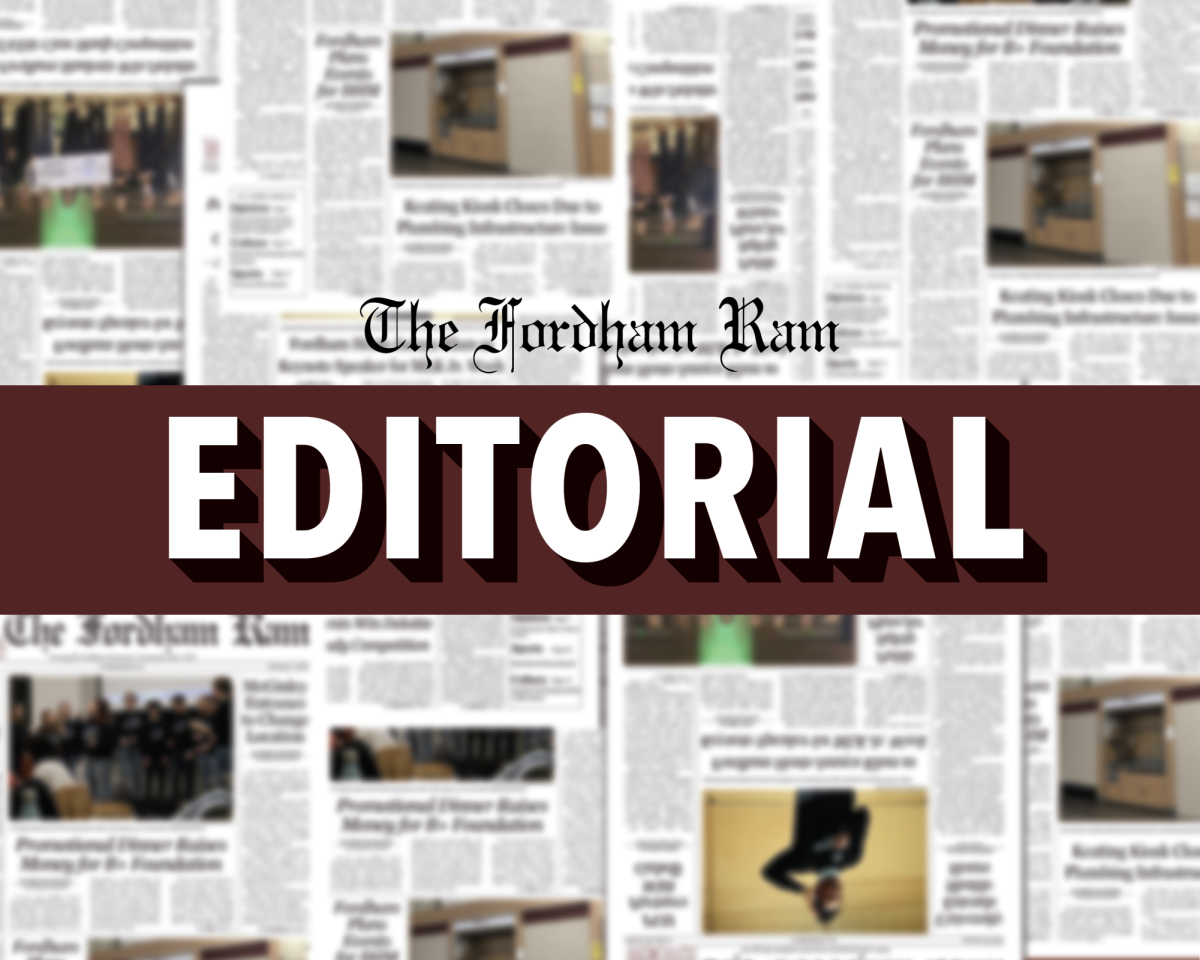College can be a very confusing and complicated system for students to navigate through with its different departments and deans. The solution to make this confusion more manageable is guiding figures who act as mentors and resources for students, in explaining how everything works. However, the idea of these guiding figures, or advisors, only seems to work in theory as it is a commonly held belief advising experiences at Fordham seem to vary student to student, depending on the advisor that each student randomly gets assigned to. The Fordham Ram E-board is made up of upperclassmen and every person reports a vastly different experience. Some of the members love their advisor and have a close relationship, others depend on staff members other than their advisor for academic support while others have never spoken to them.
Many juniors and seniors will tell you that they have had little to no contact with their advisors over the years and have solutioned themselves out of any obstacles or questions they came up against. In theory, upperclassmen should be meeting with their advisor at least once a semester in order to remove the hold for registering for classes. Many upperclassmen advisors, however, will automatically remove their hold regardless of whether or not they have met with a student.
In fairness, not many upperclassmen are reaching out to set up these meetings with their advisor. In fact, many of these students will report that they have never initiated a meeting with their advisor or have never even emailed with them. The problem here, however, is not that upperclassmen are not reaching out to their advisor or that advisors are not reaching out to their students; it’s that neither advisors nor advisees are being properly supported. As a result, things slip through the cracks and students have to take on maneuvering their education without guidance.
The first problem with Fordham’s current advising system is that department members and professors often act as advisors. Faculty members with a full course load are already stretched thin by teaching and preparing for their classes, grading and holding office hours. Faculty members who are also advisors also have to allot time to meet with the students they advise. This extra responsibility can cut into research or writing time for faculty members. Additionally, it requires faculty to have knowledge of administrative resources they may never have interacted with, such as housing, departments outside of their own and specific grad school processes. If a student declares their major in the beginning of sophomore year and still has semesters of the core curriculum to complete, how will a sociology professor be able to guide their advisee on choosing a natural science class?
Without an advisor who has the necessary knowledge, students are often forced to figure things out on their own. If their advisor is unable to translate their knowledge across departments, then students have to research what each class is and what attributes they meet, they have to figure out what classes to take and how many in order to graduate on time. If they are unable to figure out what department handles their problem, they have to rely on Google to assist them. Both faculty and students need more support from the university in terms of advising.
Fordham attempted to remedy this problem of students not being able to figure out what department did what and alleviate faculty workload with a new advising system launched in 2022. Fordham brought in five professionals whose sole job at the university was to advise students. First-year students are placed with one professional advisor for their first two years whose focus is to help students acclimate to college, pick a major and finish the core curriculum. When students reach junior year, they get a new professional advisor whose job is to help them complete their major, graduate on time and find success post-graduation.
While this system fixes many of the issues with Fordham’s previous advising methods, it most importantly attempts to equalize the amount of attention students receive.
The Fordham Ram endorses this new advising system. Students will now have an advisor who is unburdened by other responsibilities of being a faculty member, which will hopefully normalize advising experiences across the board. The Ram is optimistic that this system is a change for the better.







































































































































































































